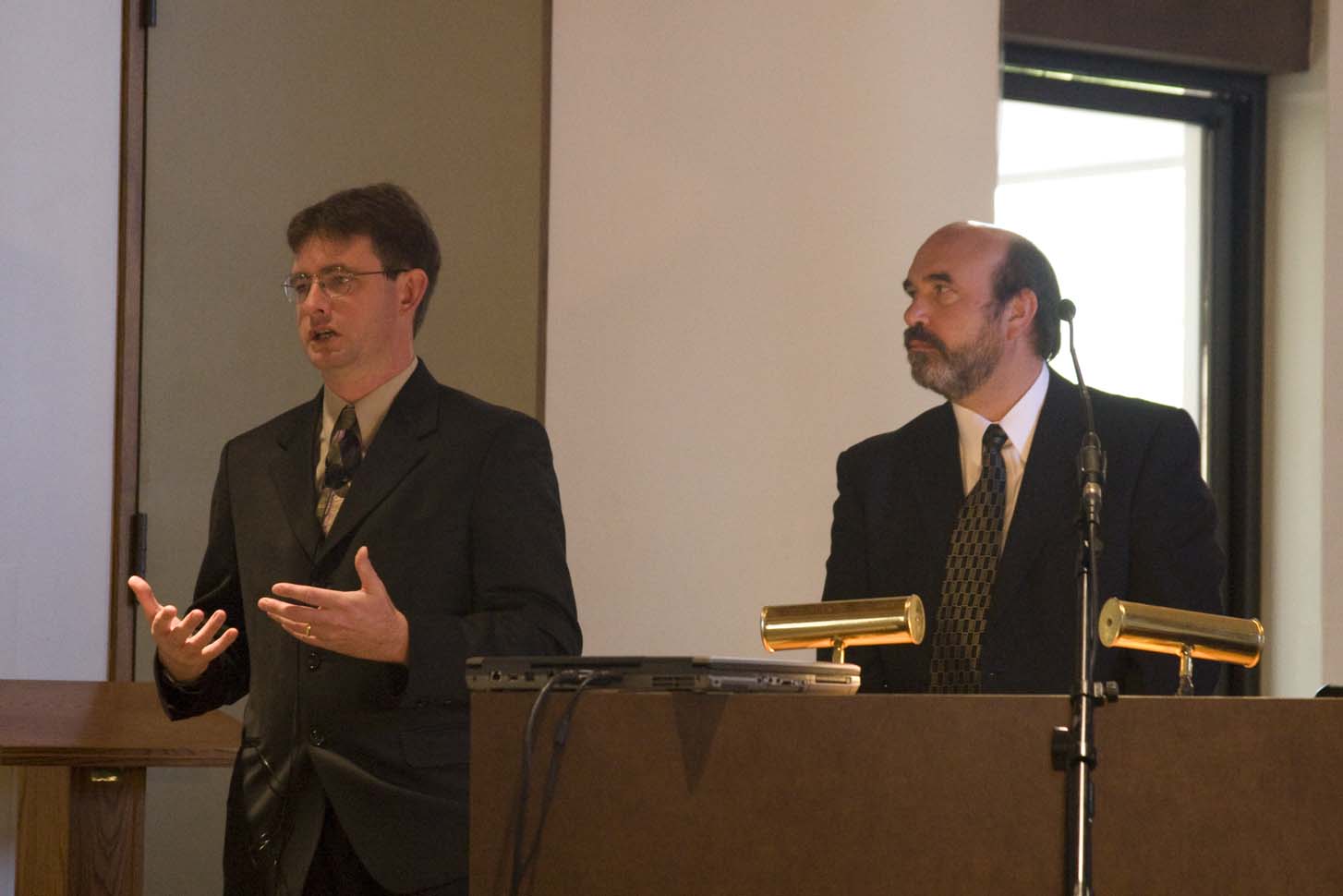History, science, Darwinian Evolution Theory and Lyman Stewart were all topics of discussion on Wednesday, Dec. 5 at the Biola History Colloquium.
Biola’s School of Arts and Sciences in association with Centennial Celebrations sponsored the Colloquium as a means of celebrating 100 years of Biola’s rich history. Biola faculty, alumni and even current students were asked to take on a specific research topic in regards to the fundamental themes that molded the character of the founders of Biola.
The School of Arts and Sciences featured three different sessions throughout the day at Calvary Chapel. The line-up started with breakfast at 8 a.m. and ended at 3 p.m. with prayer by Interim Vice Provost Jack Schwarz. The sessions included the history of Biola’s founders, the the institute’s view on science and even the history of Biola’s Student Missionary Union, the largest student-led missions organization in the United States.
President Barru Corey gave the welcome to all who came to the morning session. The first session explored the founding era of Biola, and Professor Paul Rood started with a look at the lives of our Biola founders Lyman Stewart and R.A. Torrey. Professor Fred Sanders also spoke about the history of Biola’s doctrinal statement, its content and its use in earlier years.
The most popular of the sessions, however, was the second one, dubbed “Science at Biola.” Professors Jim Rynd and Michael Keys touched on the subject of Darwinian evolution and the faith of a believer in Christ. Although some science professors offered extra credit to students who attended, other students came out of sheer interest in the topic.
“It was really cool to know about the people who founded Biola and what they thought about the Darwinian evolution theory and what it looks like to integrate it with the Bible,” said sophomore Kayla Thomas, a biochemistry major. “It was good to see what Biola thinks of science.”
Some students said that the science session in particular was insightful and beneficial to their learning as Christians and future scientists.
However, not all students who attended were there for the enrichment of Biola’s history or even extra credit for classes. Rather, because the semester is almost over, many took the opportunity to get more chapel credit.
Students were also able to contribute at the Biola History Colloquium event. Senior Victoria Wade gave a detailed account of the history of Associated Students as well as the Student Missionary Union, including the first short-term missions trips that went out. Senior Heidi Myers and a student panel also discussed the Centennial Student Oral History project.
Professor Judith Rood of the Social Science department, who helped in planning the event, was pleased with the outcome.
“Although I wished there could’ve been more people, things turned out to be a great success,” Rood said.







